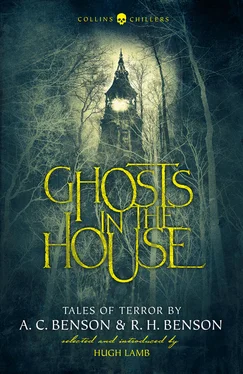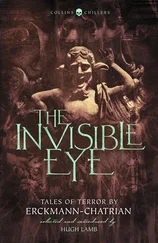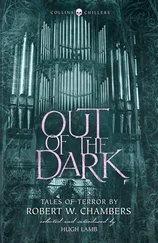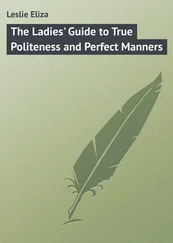The book was nonetheless a huge success, being reprinted nine times within four years of its first appearance in March 1903. Hugh’s religious leanings deprived him of the enormous royalties that flowed from all this. At the time he wrote and published the book, he was a member of the Community of the Resurrection, a religious order based near Bradford. As such, he was obliged to donate to the order all his worldly goods – book royalties and all!
His other book of ghost stories, A Mirror of Shalott (1907), was a different kettle of fish altogether. It was the book form of a set of stories he had published over the years in the Ecclesiastical Review and the Catholic Fireside , which purported to be stories told by a group of priests in Rome. Stronger than the earlier book, A Mirror of Shalott suffers in large part from a bit too much Catholicism, but makes up for it with some genuinely scary tales. ‘Father Meuron’s Story’ is an old favourite with editors, and ‘My Own Tale’ is not without reprinting over the years, but in the main, the stories used here should be refreshingly unfamiliar.
His only other essay in the supernatural is the novel The Necromancers (1909), an openly stated warning against the dangers of Spiritualism, which has been reprinted in paperback in the past forty years. I think it is also the only piece of work by A.C. or R.H. Benson to be dramatised in any form: it was filmed in 1940 under the title Spellbound , directed by John Harlow and featuring Derek Farr and Vera Lindsay. The film has also been titled Passing Clouds and The Spell of Amy Nugent .
Hugh Benson was also interested in real-life hauntings, as shown by his article ‘Haunted Houses’, written for the Pall Mall Magazine , January 1913. He takes the view that it would be foolish to ignore what he calls the ‘overwhelming’ weight of human evidence for haunted houses; an eminently satisfactory attitude for a ghost story writer. The article has not been reprinted since it first appeared, and makes an interesting counterpoint to Hugh Benson’s fictional ghost stories.
It is surprising that the E.F. Benson revival of the past thirty years has not sparked interest in the work of his brothers. All three were best sellers and all three wrote equally interesting ghost stories (though perhaps not equally entertaining). I hope this selection from Arthur Benson and Robert Hugh Benson will help restore them to their rightful place in the history of the English ghost story.
Hugh Lamb
Sutton, Surrey
January 2018
OUT OF THE SEA
A.C. Benson
It was about ten of the clock on a November morning in the little village of Blea-on-the-Sands. The hamlet was made up of some thirty houses, which clustered together on a low rising ground. The place was very poor, but some old merchant of bygone days had built in a pious mood a large church, which was now too great for the needs of the place; the nave had been unroofed in a heavy gale, and there was no money to repair it, so that it had fallen to decay, and the tower was joined to the choir by roofless walls. This was a sore trial to the old priest, Father Thomas, who had grown grey there; but he had no art in gathering money, which he asked for in a shamefaced way; and the vicarage was a poor one, hardly enough for the old man’s needs. So the church lay desolate.
The village stood on what must once have been an island; the little river Reddy, which runs down to the sea, there forking into two channels on the landward side; towards the sea the ground was bare, full of sand-hills covered with a short grass. Towards the land was a small wood of gnarled trees, the boughs of which were all brushed smooth by the gales; looking landward there was the green flat, in which the river ran, rising into low hills; hardly a house was visible save one or two lonely farms; two or three church towers rose above the hills at a long distance away. Indeed Blea was much cut off from the world; there was a bridge over the stream on the west side, but over the other channel was no bridge, so that to fare eastward it was requisite to go in a boat. To seaward there were wide sands, when the tide was out; when it was in, it came up nearly to the end of the village street. The people were mostly fishermen, but there were a few farmers and labourers; the boats of the fishermen lay to the east side of the village, near the river channel which gave some draught of water; and the channel was marked out by big black stakes and posts that straggled out over the sands, like awkward leaning figures, to the sea’s brim.
Father Thomas lived in a small and ancient brick house near the church, with a little garden of herbs attached. He was a kindly man, much worn by age and weather, with a wise heart, and he loved the quiet life with his small flock. This morning he had come out of his house to look abroad, before he settled down to the making of his sermon. He looked out to sea, and saw with a shadow of sadness the black outline of a wreck that had come ashore a week before, and over which the white waves were now breaking. The wind blew steadily from the north-east, and had a bitter poisonous chill in it, which it doubtless drew from the fields of the upper ice. The day was dark and overhung, not with cloud, but with a kind of dreary vapour that shut out the sun. Father Thomas shuddered at the wind, and drew his patched cloak round him. As he did so, he saw three figures come up to the vicarage gate. It was not a common thing for him to have visitors in the morning, and he saw with surprise that they were old Master John Grimston, the richest man in the place, half farmer and half fisherman, a dark surly old man; his wife, Bridget, a timid and frightened woman, who found life with her harsh husband a difficult business, in spite of their wealth, which, for a place like Blea, was great; and their son Henry, a silly shambling man of forty, who was his father’s butt. The three walked silently and heavily, as though they came on a sad errand.
Father Thomas went briskly down to meet them, and greeted them with his accustomed cheerfulness. ‘And what may I do for you?’ he said. Old Master Grimston made a sort of gesture with his head as though his wife should speak; and she said in a low and somewhat husky voice, with a rapid utterance, ‘We have a matter, Father, we would ask you about – are you at leisure?’ Father Thomas said, ‘Ay, I am ashamed to be not more busy! Let us go within the house.’ They did so; and even in the little distance to the door, the Father thought that his visitors behaved themselves very strangely. They peered round from left to right, and once or twice Master Grimston looked sharply behind them, as though they were followed. They said nothing but ‘Ay’ and ‘No’ to the Father’s talk, and bore themselves like people with a sore fear on their backs. Father Thomas made up his mind that it was some question of money, for nothing else was wont to move Master Grimston’s mind. So he had them into his parlour and gave them seats, and then there was a silence, while the two men continued to look furtively about them, and the goodwife sate with her eyes upon the priest’s face. Father Thomas knew not what to make of this, till Master Grimston said harshly, ‘Come wife, tell the tale and make an end; we must not take up the Father’s time.’
‘I hardly know how to say it, Father,’ said Bridget, ‘but a strange and evil thing has befallen us; there is something come to our house, and we know not what it is – but it brings a fear with it.’ A sudden paleness came over her face, and she stopped, and the three exchanged a glance in which terror was visibly written. Master Grimston looked over his shoulder swiftly, and made as though to speak, yet only swallowed in his throat; but Henry said suddenly, in a loud and woeful voice, ‘It is an evil beast out of the sea.’ And then there followed a dreadful silence, while Father Thomas felt a sudden fear leap up in his heart, at the contagion of fear that he saw written on the faces round him. But he said with all the cheerfulness he could muster, ‘Come, friends, let us not begin to talk of sea-beasts; we must have the whole tale. Mistress Grimston, I must hear the story – be content – nothing can touch us here.’ The three seemed to draw a faint content from his words, and Bridget began:
Читать дальше












